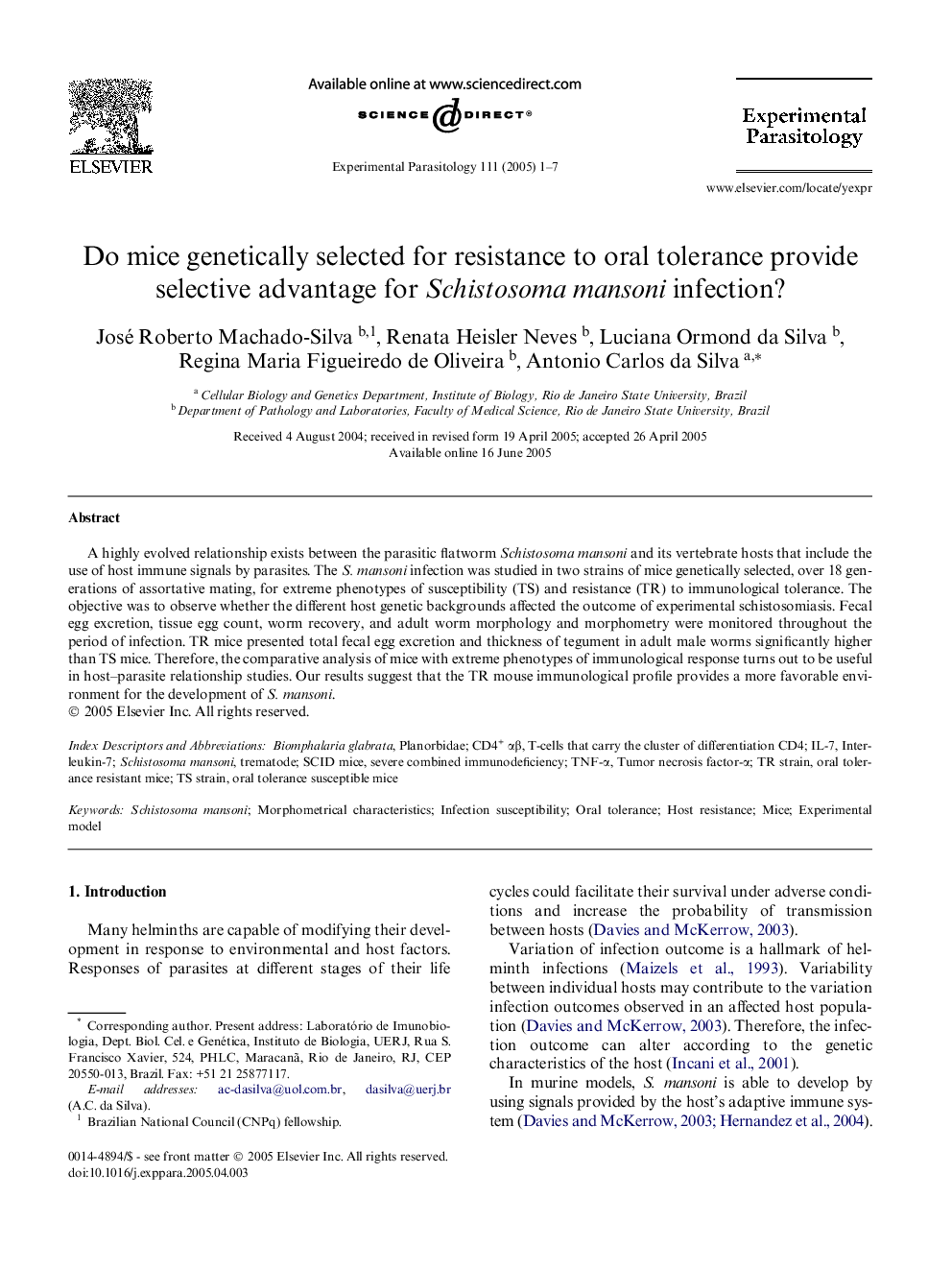| Article ID | Journal | Published Year | Pages | File Type |
|---|---|---|---|---|
| 9442921 | Experimental Parasitology | 2005 | 7 Pages |
Abstract
A highly evolved relationship exists between the parasitic flatworm Schistosoma mansoni and its vertebrate hosts that include the use of host immune signals by parasites. The S. mansoni infection was studied in two strains of mice genetically selected, over 18 generations of assortative mating, for extreme phenotypes of susceptibility (TS) and resistance (TR) to immunological tolerance. The objective was to observe whether the different host genetic backgrounds affected the outcome of experimental schistosomiasis. Fecal egg excretion, tissue egg count, worm recovery, and adult worm morphology and morphometry were monitored throughout the period of infection. TR mice presented total fecal egg excretion and thickness of tegument in adult male worms significantly higher than TS mice. Therefore, the comparative analysis of mice with extreme phenotypes of immunological response turns out to be useful in host-parasite relationship studies. Our results suggest that the TR mouse immunological profile provides a more favorable environment for the development of S. mansoni.
Keywords
Related Topics
Life Sciences
Immunology and Microbiology
Parasitology
Authors
José Roberto Machado-Silva, Renata Heisler Neves, Luciana Ormond da Silva, Regina Maria Figueiredo de Oliveira, Antonio Carlos da Silva,
